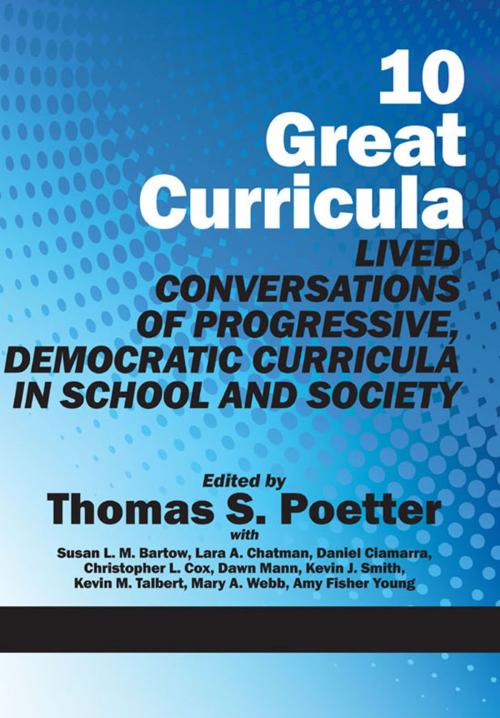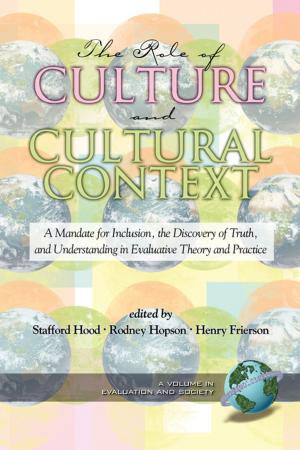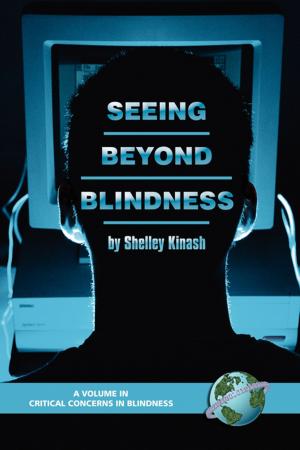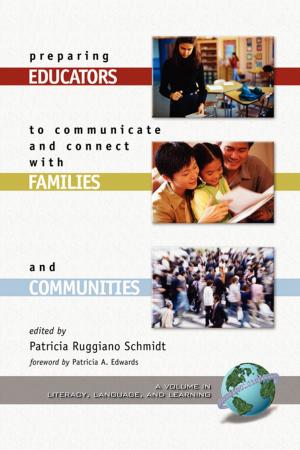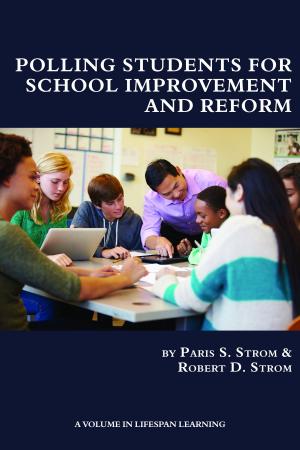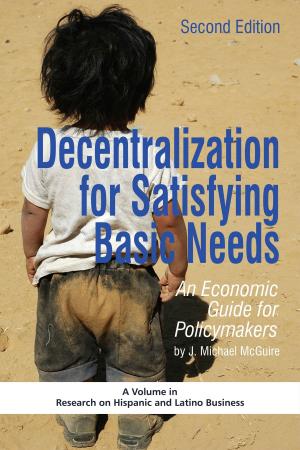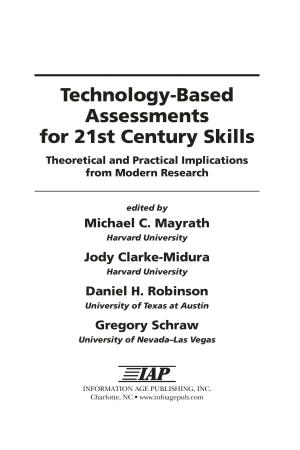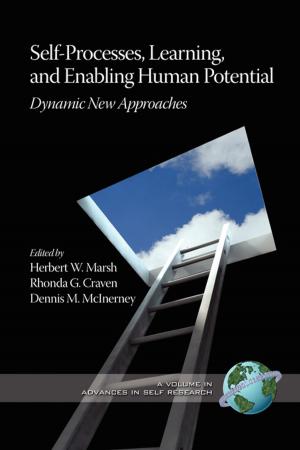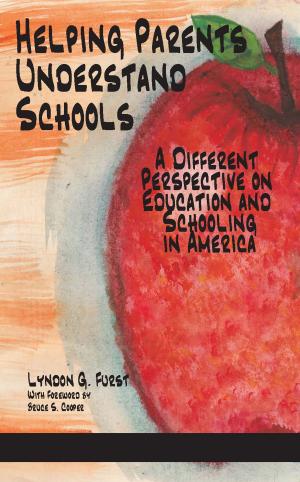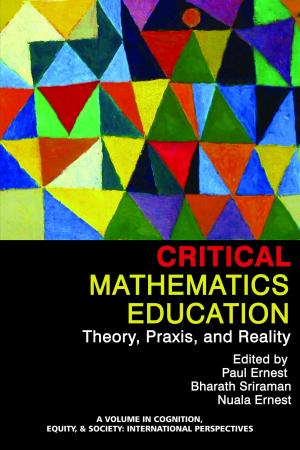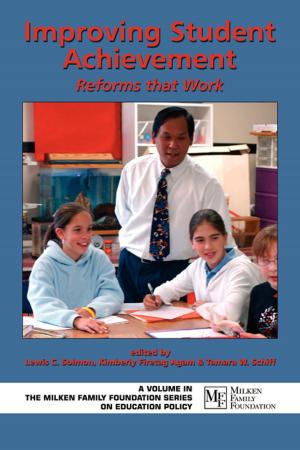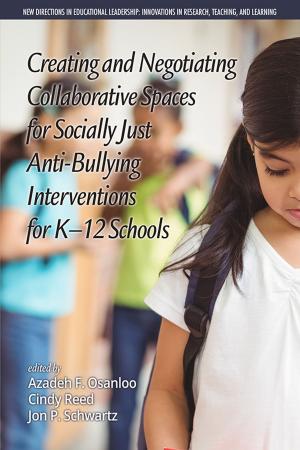10 Great Curricula
Lived Conversations of Progressive, Democratic Curricula in School and Society
Nonfiction, Reference & Language, Education & Teaching, Educational Theory, Curricula| Author: | ISBN: | 9781617356131 | |
| Publisher: | Information Age Publishing | Publication: | January 1, 2012 |
| Imprint: | Information Age Publishing | Language: | English |
| Author: | |
| ISBN: | 9781617356131 |
| Publisher: | Information Age Publishing |
| Publication: | January 1, 2012 |
| Imprint: | Information Age Publishing |
| Language: | English |
With: Susan L. M. Bartow, Lara A. Chatman, Daniel Ciamarra, Christopher L. Cox, Dawn Mann, Kevin J. Smith, Kevin M. Talbert, Mary A. Webb and Amy Fisher Young. 10 Great Curricula is a collection of stories written by educators who have come to understand curricula differently as a result of their engagement with a graduate course and its instructor. The book represents the best of what can be found in teaching and learning, in general, and in the quest for meaningful ways to understand curricula in particular. The coauthors of this volume on “10 Great Curricula” framed their inquiries into progressive, democratic curricula, at least initially, through Marsh and Willis’ (2007) notions of planned, enacted, and lived curricula. These frames helped the writers think about how to engage a curriculum as it is developed, delivered, and lived by its participants, and for the inquirers to actually become participantinquirers in the curriculum at hand. The chapters depict the power, the possibility, and the transformational potential of “great” progressive curricula today by locating them in schools and in the community, by making them come alive to the reader, and by suggesting means through which the reader can adopt a more progressive, democratic stance to curriculum despite the seemingly overwhelming nature of the conservative, traditionalist, instrumentalist movements in curriculum, teaching, and assessment today. The book is intended for students of education, teaching, and curriculum, undergraduates, graduates, and practicing educational professionals, especially those looking for examples in the world in which progressive, democratic ideals are nurtured and practiced.
With: Susan L. M. Bartow, Lara A. Chatman, Daniel Ciamarra, Christopher L. Cox, Dawn Mann, Kevin J. Smith, Kevin M. Talbert, Mary A. Webb and Amy Fisher Young. 10 Great Curricula is a collection of stories written by educators who have come to understand curricula differently as a result of their engagement with a graduate course and its instructor. The book represents the best of what can be found in teaching and learning, in general, and in the quest for meaningful ways to understand curricula in particular. The coauthors of this volume on “10 Great Curricula” framed their inquiries into progressive, democratic curricula, at least initially, through Marsh and Willis’ (2007) notions of planned, enacted, and lived curricula. These frames helped the writers think about how to engage a curriculum as it is developed, delivered, and lived by its participants, and for the inquirers to actually become participantinquirers in the curriculum at hand. The chapters depict the power, the possibility, and the transformational potential of “great” progressive curricula today by locating them in schools and in the community, by making them come alive to the reader, and by suggesting means through which the reader can adopt a more progressive, democratic stance to curriculum despite the seemingly overwhelming nature of the conservative, traditionalist, instrumentalist movements in curriculum, teaching, and assessment today. The book is intended for students of education, teaching, and curriculum, undergraduates, graduates, and practicing educational professionals, especially those looking for examples in the world in which progressive, democratic ideals are nurtured and practiced.
